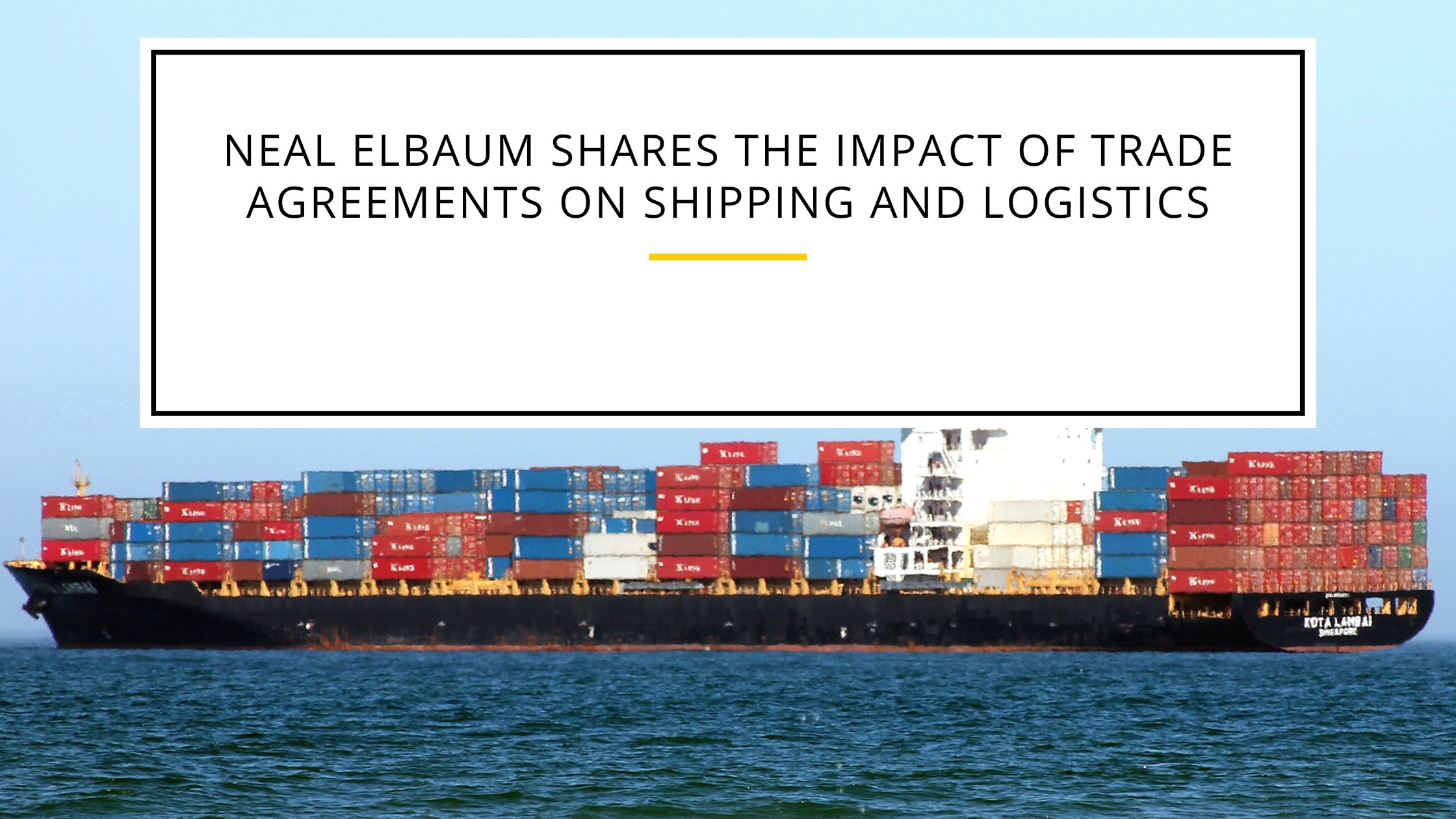In the latest interconnected global, global trade agreements play a pivotal function in shaping the panorama of the transport and logistics industry.
These agreements, which modify the alternate of goods and services among global places, have a profound effect on the way companies conduct international enterprise, affecting delivery chain operations, fees, and market dynamics.
Neal Elbaum, an enterprise professional with vast enjoyment in global change and logistics, sheds light on how worldwide alternate agreements affect delivery and logistics.
Understanding the Role of Global Trade Agreements
Global alternate agreements are legally binding compacts that govern alternate family contributors between worldwide locations. They are designed to facilitate trade by lowering tariffs, simplifying customs strategies, and addressing non-tariff obstacles to alternate.
These agreements can take a lot of paperwork, from bilateral agreements among two international locations to multilateral offers related to multiple international locations.
Neal Elbaum’s Insights on Trade Agreements
Neal Elbaum, a veteran within the shipping and logistics vicinity, has deep information on the manner trade agreements affect the organization. He highlights several key approaches in which those agreements affect the sector of delivery and logistics.
Tariff Reduction and Elimination:
Trade agreements regularly reason for the bargaining or elimination of import and export tariffs. This can extensively affect the cost of transporting goods all through borders, making worldwide trade more low fee for agencies.
Also Read: George Dfouni Shares His Proven Strategies for Success in Hospitality
Streamlined Customs Procedures:
Simplified customs processes are a commonplace feature of trade agreements. This can expedite the motion of products via ports and border crossings, reducing delays and related fees.
Streamlined customs procedures often involve the harmonization of documentation requirements, making it easier for businesses to navigate international trade
Market Access:
Trade agreements provide entry to new markets, enabling logistics groups to increase their services to a wider client base. Neal Elbaum emphasizes the importance of expertise in the market access possibilities furnished by change agreements to capitalize on emerging markets.
Expanding on the significance of expertise in market access facilitated by trade agreements, logistics groups need to stay well-informed about the intricate regulations, customs procedures, and tariff structures of the target markets
Regulatory Harmonization:
Harmonizing hints and standards in the course of international locations is each different thing of trade agreements. This enables lowering compliance costs for corporations, in particular those handling various product categories.
Supply Chain Optimization:
Neal Elbaum notes that organizations can optimize their supply chains based totally on the provisions of trade agreements. These optimizations can cause extra green operations and higher fee management.
Risk Mitigation:
Trade agreements can provide a degree of stability and predictability in international trade, lowering the hazard related to unexpected adjustments in trade guidelines.
To stability and predictability, trade agreements also offer risk mitigation by fostering increased transparency and dispute resolution mechanisms.
The Role of Trade Agreements in Global Logistics
Trade agreements no longer only impact the transport employer but also have a profound impact on the whole logistics place. Trade agreements play a pivotal role in shaping the landscape of global logistics. They have evolved to encompass much more than just import and export regulations.
These agreements have become integral to the broader logistics ecosystem. Neal Elbaum’s emphasis on the interconnectedness of the transport and logistics industries highlights the need for logistics providers to adapt and align their strategies with this evolving landscape.
The Future of Trade Agreements
Global exchange agreements are continuously evolving, and new agreements are being negotiated. As the arena faces numerous monetary, political, and environmental stressful situations, groups must live informed about the modifications.
Neal Elbaum shows that corporations have to have a proactive approach to know-how and leveraging exchange agreements to stay aggressive in the ever-changing global market.
In the end, trade agreements are pivotal to the functioning of the shipping and logistics employer. Neal Elbaum’s insights shed light on the essential feature of trade agreements in shaping the landscape of global exchange, and the way agencies should adapt and strategize to thrive in this dynamic environment. Understanding and navigating those agreements is critical for those concerned with international delivery and logistics.



